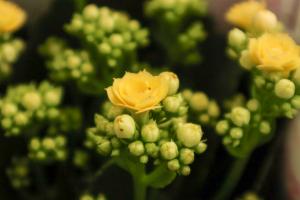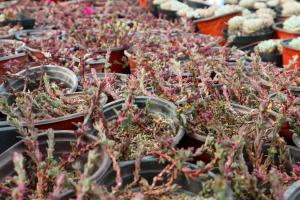Does Gray Water Hurt Plants?
Gray water, which is the water that comes from household sources like laundry machines, sinks, and showers, can be a great source of water for plants. However, there has been some debate about whether or not gray water can harm plants. Here, we will explore the topic and answer the question: does gray water hurt plants?
The Pros of Using Gray Water on Plants
The use of gray water on plants can provide various benefits, including:
Conservation of water: Gray water is a sustainable way to reuse water that would otherwise be wasted.
Savings on water bills: By using gray water on plants, you can reduce your need for fresh water, which can lead to savings on your water bills.
Nutrient-rich water: Gray water can contain nutrients that are beneficial for plants, such as nitrogen, potassium, and phosphorus.
Reduced strain on wastewater treatment facilities: By reusing gray water instead of sending it down the drain, you can reduce the amount of water that needs to be treated by wastewater facilities.
Potential Risks of Gray Water on Plants
While there are clear advantages to using gray water on plants, there are also some risks associated with it. These risks are generally related to the presence of contaminants in the water, such as soap, detergents, and other chemicals. Some potential risks of using gray water on plants include:
Buildup of salts and minerals: Gray water can contain high levels of salts and minerals, which can build up in the soil over time and harm plants.
Contamination with harmful chemicals: Some household products contain chemicals that can harm plants, such as bleach, boron, and sodium, which can accumulate in the soil and harm plant roots.
Spread of disease: Gray water can contain harmful bacteria and other pathogens, which can spread disease to plants and other living organisms in the soil.
How to Safely Use Gray Water on Plants
While the risks of using gray water on plants are real, they can be mitigated with proper precautions. Here are some ways to safely use gray water on plants:
Use biodegradable, plant-based soaps and detergents: Avoid using products that contain harmful chemicals that can harm plants.
Avoid using gray water on edible plants: While gray water can be safe for non-edible plants, it should be avoided for plants that are used for food.
Apply gray water directly to the soil: Avoid spraying gray water on the leaves of plants, as this can increase the risk of contamination and spread of disease.
Limit the use of gray water: While gray water can be a useful source of water for plants, it should not be the sole source of water, as this can lead to the buildup of salts and minerals in the soil over time.
In Conclusion
Gray water can be a useful and sustainable source of water for plants, but it does come with some risks. By taking the proper precautions and following the guidelines outlined here, you can safely use gray water on your plants without harming them.

 how many times do yo...
how many times do yo... how many planted tre...
how many planted tre... how many pine trees ...
how many pine trees ... how many pecan trees...
how many pecan trees... how many plants comp...
how many plants comp... how many plants can ...
how many plants can ... how many plants and ...
how many plants and ... how many pepper plan...
how many pepper plan...
































